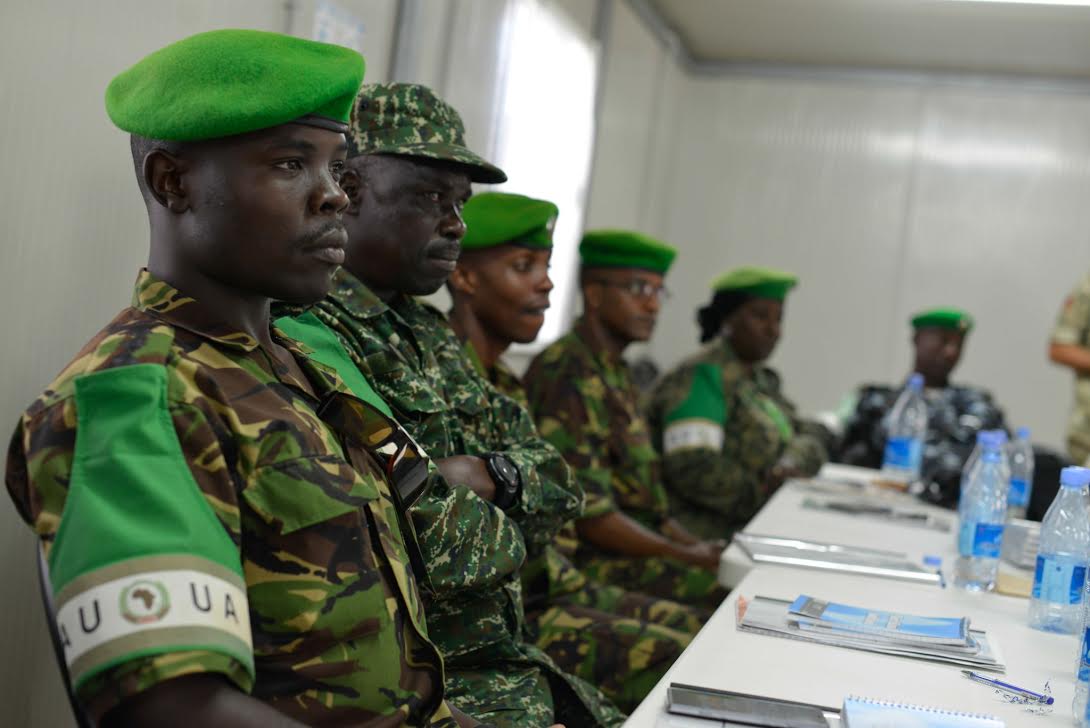AMISOM officers undergo training on humanitarian assistance

A group of civil-military coordination officers from the African Union Mission in Somalia (AMISOM) have completed a two-day training workshop on how to better coordinate with humanitarian agencies in delivery of assistance to communities affected by conflict.
The workshop, which opened yesterday in Mogadishu, aimed to formulate and create awareness on Somalia-specific humanitarian and civil-military coordination guidelines.
The workshop was jointly organized by the United Nations Office for the Coordination of Humanitarian Affairs (UNOCHA) and the African Union Mission in Somalia (AMISOM).
Speaking during the opening of the training, the Special Representative of the Chairperson of the African Union Commission (SRCC) for Somalia, Ambassador Francisco Madeira, stressed the importance of working together, adding that the workshop would aid the establishment of appropriate principles and practices for constructive relations between AMISOM and humanitarian actors in Somalia.
“Humanitarian challenges in Somalia call for increased coordination and dialogue between AMISOM and humanitarian actors operating in the country. This workshop is essential as it will ensure protection of civilians, delivery of assistance to those affected by conflict, based on needs assessment in recovered and newly recovered areas,” said Ambassador Madeira.
The workshop, the SRCC added, was important in aiding AMISOM and UN agencies review the way they operate Somalia by highlighting good practices as well as those that require improvement.
Peter de Clercq, the Deputy Special Representative of the United Nations Secretary-General (DSRSG) for Somalia, who is also the UN Humanitarian Resident Coordinator, said humanitarian actors work in difficult conditions, adding that they have to access and deliver assistance to communities in government-controlled areas as well as those under armed groups.
“Humanitarians and military don’t always understand each other and there may not always be the kind of patience on both sides to cooperate. But I hope that this workshop will increase the mutual understanding between military and humanitarian players and improve cooperation,” said De Clercq.
The workshop drew 20 participants representing various sectors, including police and military officers from Troop and Police Contributing Countries of Djibouti, Kenya, Burundi, Uganda, Nigeria and Ghana.
Col Dahir Aden Abrar, AMISOM Deputy Chief of Staff, who presided over the closure of the training, urged participants to apply what they had learned in the two-day workshop.
“The importance of the CIMIC Military coordination in an environment like Somalia cannot be overemphasized. Somalia needs a lot of humanitarian assistance because of the long period of instability and conflict,” Col Abrar observed.
He, however, noted that assistance should be delivered in a coordinated fashion to avoid competition, duplication and misuse of resources.
Senior Superintendent of Police (SSP), Moses Byabagye, who is also the CIMIC team leader in Baidoa, said the course had enriched their knowledge adding that it will help them build the best coordination between humanitarian actors and the civil society.